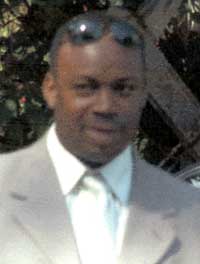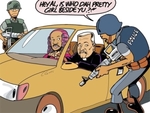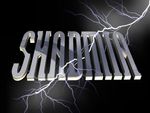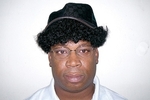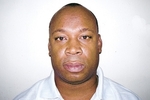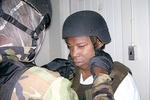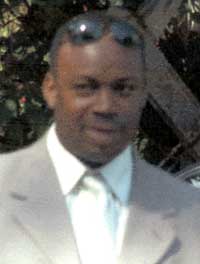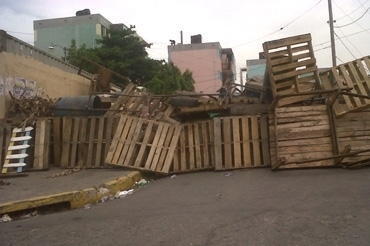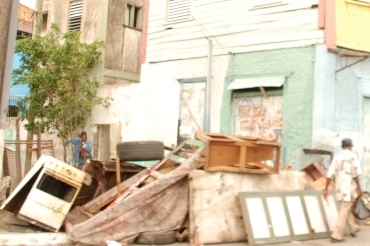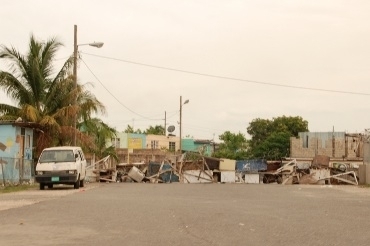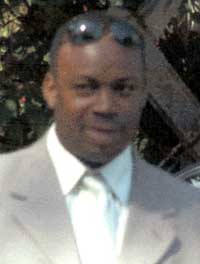
Christopher Dudus Coke is still wanted and the Jamaican Government's failure to turn him over to the U.S. authorities, who have been seeking his extradition since Aug. 2009, has strained relations between the two countries.
In the recently released INCSR 2010 (International Narcotics Control Strategy Report), which identifies and reports on countries involved in drug trafficking, Jamaica was singled out for being reluctant to carry out extradition requests "for a major alleged narcotics and firearms trafficker" as outlined on page 274 of the report:
While cooperation between Government of Jamaica (GOJ) and U.S. Government (USG) law enforcement agencies remained strong, delays in proceeding with the significant extradition request for a major alleged narcotics and firearms trafficker who is reported to have ties to the ruling Jamaica Labour Party, and subsequent delays in other extradition requests, have called into question Kingston’s commitment to law enforcement cooperation with the U.S. While cooperation between Government of Jamaica (GOJ)and U.S. Government (USG) law enforcement agencies remained strong, delays in proceeding with the significant extradition request for a major alleged narcotics and firearms trafficker who is reported to have ties to the ruling Jamaica Labour Party, and subsequent delays in other extradition requests, have called into question Kingston’s commitment to law enforcement cooperation with the U.S.
The scathing report on illegal drugs in Jamaica states that both the business sector and politics have been compromised by the drug trade and "Porous sea and air ports serve as direct export locations of marijuana and cocaine to the United States":
Jamaica’s murder rate per capita reached 1,672 in 2009 making it one of the highest in the world. The difficult economic situation has spawned a significant increase in aggravated crime such as larceny, robbery, and rape. This, in turn, has placed a national spotlight on increasingly brazen criminal activity throughout the country which continues to threaten civil society. A particular focus of concern has been the increasing activity of organized crime, which permeates both the legitimate business sector as well as the political sector. The “guns for ganja” trade exacerbates the problem as undocumented handguns continue to flow freely into the country. Recent assessments indicate that approximately 70 percent of the illegal firearms entering Jamaica originated from the U.S.
Leaving no doubt that
the U.S. is displeased at the delay in turning over Christopher Dudus Coke, the INCSR implies that Coke is being shielded from extradition because of his ties to the JLP (Jamaica Labour Party) which currently controls the government.
Until August 2009, the extradition treaty between the USG and the GOJ had been actively and
successfully used by the United States to extradite suspected criminals from Jamaica. Extradition requests were routinely and timely processed by Jamaican political and judicial authorities. The GOJ’s unusual handling of the August request for the extradition of a high profile Jamaican crime lord with reported ties to the ruling Jamaica Labor Party, which currently holds a majority in parliament, on alleged drug and firearms trafficking charges marked a dramatic change in GOJ’s previous cooperation on extradition, including a temporary suspension in the processing of all other pending requests and raises serious questions about the GOJ’s commitment to combating transnational crime. The high profile suspect resides in and essentially controls the Kingston neighborhood known as Tivoli Gardens, a key constituency for the Jamaica Labour Party. Jamaica’s processing of the extradition request has been subjected to unprecedented delays, unexplained disclosure of law enforcement information to the press, and unfounded allegations questioning U.S. compliance with the MLAT (Mutual Legal Assistance Treaty) and Jamaican law.
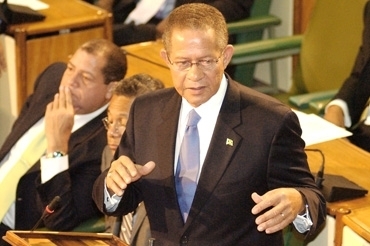 Bruce Golding in the House
Bruce Golding in the House
The Prime Minister of Jamaica, Bruce Golding, in response to the report rejected U.S. claims and questioned the legitimacy of the extradition request. He claimed that some of the evidence used to justify the U.S. request was obtained by secretly and illegally recording communications.
The request for the extradition of Coke was received on August 25, 2009. There were aspects of the case and the procedures employed that were abnormal and the Government, consistent with the provisions of the Extradition Treaty, sought clarification and additional information...In one important respect, however, it was found to be in violation of the law. The Interception of Communications Act makes strict provisions for the manner in which intercepted communications may be obtained and disclosed. The evidence supporting the extradition request in this particular case violated those provisions. So serious an offence is this violation that the penalty provided by law is a maximum fine of five million dollars, or to imprisonment for a term not exceeding five years, or to both such fine and imprisonment. The law further requires that for intercepted communication to be admissible in any criminal proceedings it must have been obtained, disclosed and used in accordance with these provisions. This was not done in this case. This was highly irregular.
Prime Minister Bruce Golding also said that there had been meetings with U.S. authorities regarding this matter both in Jamaica and Washington, D.C. where the government of Jamaica has remained constantly engaged with the US authorities on the matter.
The Jamaican government has indicated that if the U.S. had other evidence, the procurement and disclosure of which were not in violation of Jamaican law, the minister would be prepared to accept that evidence and issue the necessary authority to proceed. No such evidence has up to now been presented.
In questioning the assertions in the INCSR about the reluctance of Jamaica to live up to its international agreements, the Prime Minister said:
The US Narcotics Control Strategy Report accuses the Government of "unfounded allegations questioning US compliance with the Mutual Legal Assistance Treaty and Jamaican law", and has questioned the Government's commitment to law-enforcement cooperation with the US.
We respectfully reject these assertions. The minister of justice, in authorising extradition proceedings, has a duty to satisfy herself that they conform to the provisions of Jamaican law. As minister and, especially, as attorney general, she cannot authorise processes which she knows to be in violation of Jamaican law.
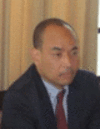 Wayne Chen
Wayne Chen Karl Samuda
Karl Samuda
So what is next? In a move widely interpreted as sign of displeasure, the U.S. revoked the visa of Wayne Chen, Chairman of the state-run Urban Development Corporation. There has been no explanation for the revocation and Karl Samuda, General Secretary of the governing Jamaica Labour Party, has refuted reports that members and affiliates of the Party have also had their United States visas revoked.
The Christopher Dudus Coke affair also caused problems in Parliament with accusations flying back and forth between the Government and the Opposition over the reluctance to sign the extradition warrant.
Aside from the political arena, other groups have joined the call to place the matter of the extradition of Christopher Dudus Coke before the Jamaican court system. The contention that the extradition request from the the U.S. is flawed by evidence obtained by illegal wiretaps is a matter for the courts to decide.
- The Jamaica Council of Churches (JCC)
- The Independent Jamaican Council for Human Rights (IJCHR)
- Jamaicans for Justice (JFJ)
- The Private Sector Organisation of Jamaica (PSOJ)
- Families Against State Terrorism
- And the Parliamentary Opposition
Have all joined together in opposition to Bruce Golding's decision to keep the issue out of court:
"The (extradition) matter should go before the courts," was the blunt declaration of the Reverend Peter Garth of the umbrella church group, which usually stays out of such issues.
"The council is troubled by the seeming trend to reduce or curtail judicial authority, and warns that there are constitutional implications," declared the Arlene Harrison Henry-led IJCHR.
"We embark on a dangerous road when the executive authority usurps judicial functions by making decisions about evidence. As such, decisions can only be properly made by the court after a full public hearing of all issues, and after the hearing of all parties"
"We fully support the position of the IJCHR and believe the Dudus matter needs to be placed before the courts," asserted Dr Carolyn Gomes, executive director of JFJ.
"In fact, we believe that it is a breach of the principle of separation of powers for the executive to assume the duty of the judiciary," Gomes added. "We have always argued that the court is the final arbitrator, and we have sought to defend the rights of all Jamaicans in a court of law."
In reality the Dudus affair has been a huge headache for Prime Minister Bruce Golding. Christopher Dudus Coke, no matter what anyone says, is not an ordinary citizen of Jamaica. He controls the area known as Tivoli Gardens from which the Prime Minister derives his political power and support. To be seen as "giving up" Dudus to the Americans would not only be unpopular in Tivoli Gardens it would be tantamount to political suicide. On the other hand to be seen as being uncooperative with the American authorities over this matter, leaves him open to charges of being a corrupt politician under the influence of an internationally wanted criminal. There are no good options for Bruce Golding.
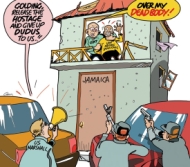
In the meantime Christopher Dudus Coke has other things on his mind. It's his birthday! And in the style and pomp of the beloved Don that he is, he plans to throw a party. He will celebrate his 41st birthday with an elaborate two-day bash in the community that treats him like a king - Tivoli Gardens.
Where he will be for birthday number 42 is anybody's guess.
Also See: Dudus Wanted and Dudus to be Extradited? also Dudus Extradition Approved!<<----

Follow me on Twitter
 Wednesday, June 23, 2010 at 3:09PM
Wednesday, June 23, 2010 at 3:09PM 